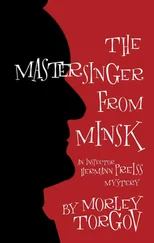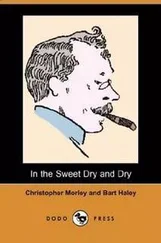Christopher Morley - Where the Blue Begins
Здесь есть возможность читать онлайн «Christopher Morley - Where the Blue Begins» весь текст электронной книги совершенно бесплатно (целиком полную версию без сокращений). В некоторых случаях можно слушать аудио, скачать через торрент в формате fb2 и присутствует краткое содержание. Жанр: Проза, на английском языке. Описание произведения, (предисловие) а так же отзывы посетителей доступны на портале библиотеки ЛибКат.
- Название:Where the Blue Begins
- Автор:
- Жанр:
- Год:неизвестен
- ISBN:нет данных
- Рейтинг книги:5 / 5. Голосов: 1
-
Избранное:Добавить в избранное
- Отзывы:
-
Ваша оценка:
- 100
- 1
- 2
- 3
- 4
- 5
Where the Blue Begins: краткое содержание, описание и аннотация
Предлагаем к чтению аннотацию, описание, краткое содержание или предисловие (зависит от того, что написал сам автор книги «Where the Blue Begins»). Если вы не нашли необходимую информацию о книге — напишите в комментариях, мы постараемся отыскать её.
Where the Blue Begins — читать онлайн бесплатно полную книгу (весь текст) целиком
Ниже представлен текст книги, разбитый по страницам. Система сохранения места последней прочитанной страницы, позволяет с удобством читать онлайн бесплатно книгу «Where the Blue Begins», без необходимости каждый раз заново искать на чём Вы остановились. Поставьте закладку, и сможете в любой момент перейти на страницу, на которой закончили чтение.
Интервал:
Закладка:
His legs ached as he took his evening stroll — keeping within earshot of the house, so as to hear any possible outcry from the nursery. He had been on his feet all day. But he reflected that there was a real satisfaction in his family tasks, however gruelling. Now, at last (he said to himself), I am really a citizen, not a mere dilettante. Of course it is arduous. No one who is not a parent realizes, for example, the extraordinary amount of buttoning and unbuttoning necessary in rearing children. I calculate that 50,000 buttonings are required for each one before it reaches the age of even rudimentary independence. With the energy so expended one might write a great novel or chisel a statue. Never mind: these urchins must be my Works of Art. If one were writing a novel, he could not delegate to a hired servant the composition of laborious chapters.
So he took his responsibility gravely. This was partly due to the christening service, perhaps, which had gone off very charmingly. It had not been without its embarrassments. None of the neighbouring ladies would stand as godmother, for they were secretly dubious as to the children's origin; so he had asked good Mrs. Spaniel to act in that capacity. She, a simple kindly creature, was much flattered, though certainly she can have understood very little of the symbolical rite. Gissing, filling out the form that Mr. Poodle had given him, had put down the names of an entirely imaginary brother and sister-in-law of his, “deceased,” whom he asserted as the parents. He had been so busy with preparations that he did not find time, before the ceremony, to study the text of the service; and when he and Mrs. Spaniel stood beneath the font with an armful of ribboned infancy, he was frankly startled by the magnitude of the promises exacted from him. He found that, on behalf of the children, he must “renounce the devil and all his work, the vain pomp and glory of the world;” that he must pledge himself to see that these infants would “crucify the old man and utterly abolish the whole body of sin.” It was rather doubtful whether they would do so, he reflected, as he felt them squirming in his arms while Mrs. Spaniel was busy trying to keep their socks on. When the curate exhorted him “to follow the innocency” of these little ones, it was disconcerting to have one of them burst into a piercing yammer, and wriggle so forcibly that it slipped quite out of its little embroidered shift and flannel band. But the actual access to the holy basin was more seemly, perhaps due to the children imagining they were going to find tadpoles there. When Mr. Poodle held them up they smiled with a vague almost bashful simplicity; and Mrs. Spaniel could not help murmuring “The darlings!” The curate, less experienced with children, had insisted on holding all three at once, and Gissing feared lest one of them might swarm over the surpliced shoulder and fall splash into the font. But though they panted a little with excitement, they did nothing to mar the solemn instant. While Mrs. Spaniel was picking up the small socks with which the floor was strewn, Gissing was deeply moved by the poetry of the ceremony. He felt that something had really been accomplished toward “burying the Old Adam.” And if Mrs. Spaniel ever grew disheartened at the wash-tubs, he was careful to remind her of the beautiful phrase about the mystical washing away of sin.
They had been christened Groups, Bunks, and Yelpers, three traditional names in his family.
Indeed, he was reflecting as he walked in the dusk, Mrs. Spaniel was now his sheet anchor. Fortunately she showed signs of becoming extraordinarily attached to the puppies. On the two days a week when she came up from the village, it was even possible for him to get a little relaxation — to run down to the station for tobacco, or to lie in the hammock briefly with a book. Looking off from his airy porch, he could see the same blue distances that had always tempted him, but he felt too passive to wonder about them. He had given up the idea of trying to get any other servants. If it had been possible, he would have engaged Mrs. Spaniel to sleep in the house and be there permanently; but she had children of her own down in the shantytown quarter of the village, and had to go back to them at night. But certainly he made every effort to keep her contented. It was a long steep climb up from the hollow, so he allowed her to come in a taxi and charge it to his account. Then, on condition that she would come on Saturdays also, to help him clean up for Sunday, he allowed her, on that day, to bring her own children too, and all the puppies played riotously together around the place. But this he presently discontinued, for the clamour became so deafening that the neighbours complained. Besides, the young Spaniels, who were a little older, got Groups, Bunks, and Yelpers into noisy and careless habits of speech.
He was anxious that they should grow up refined, and was distressed by little Shaggy Spaniel having brought up the Comic Section of a Sunday paper. With childhood's instinctive taste for primitive effects, the puppies fell in love with the coloured cartoons, and badgered him continually for “funny papers.”
There is a great deal more to think about in raising children (he said to himself) than is intimated in Dr. Holt's book on Care and Feeding. Even in matters that he had always taken for granted, such as fairy tales, he found perplexity. After supper — (he now joined the children in their evening bread and milk, for after cooking them a hearty lunch of meat and gravy and potatoes and peas and the endless spinach and carrots that the doctors advise, to say nothing of the prunes, he had no energy to prepare a special dinner for himself) — after supper it was his habit to read to them, hoping to give their imaginations a little exercise before they went to bed. He was startled to find that Grimm and Hans Andersen, which he had considered as authentic classics for childhood, were full of very strong stuff — morbid sentiment, bloodshed, horror, and all manner of painful circumstance. Reading the tales aloud, he edited as he went along; but he was subject to that curious weakness that afflicts some people: reading aloud made him helplessly sleepy: after a page or so he would fall into a doze, from which he would be awakened by the crash of a lamp or some other furniture. The children, seized with that furious hilarity that usually begins just about bedtime, would race madly about the house until some breakage or a burst of tears woke him from his trance. He would thrash them all and put them to bed howling. When they were asleep he would be touched with tender compassion, and steal in to tuck them up, admiring the innocence of each unconscious muzzle on its pillow. Sometimes, in a crisis of his problems, he thought of writing to Dr. Holt for advice; but the will-power was lacking.
It is really astonishing how children can exhaust one, he used to think. Sometimes, after a long day, he was even too weary to correct their grammar. “You lay down!” Groups would admonish Yelpers, who was capering in his crib while Bunks was being lashed in with the largest size of safety pins. And Gissing, doggedly passing from one to another, was really too fatigued to reprove the verb, picked up from Mrs. Spaniel.
Fairy tales proving a disappointment, he had great hopes of encouraging them in drawing. He bought innumerable coloured crayons and stacks of scribbling paper. After supper they would all sit down around the dining-room table and he drew pictures for them. Tongues depending with concentrated excitement, the children would try to copy these pictures and colour them. In spite of having three complete sets of crayons, a full roster of colours could rarely be found at drawing time. Bunks had the violet when Groups wanted it, and so on. But still, this was often the happiest hour of the day. Gissing drew amazing trains, elephants, ships, and rainbows, with the spectrum of colours correctly arranged and blended. The children specially loved his landscapes, which were opulently tinted and magnificent in long perspectives. He found himself always colouring the far horizons a pale and haunting blue.
Читать дальшеИнтервал:
Закладка:
Похожие книги на «Where the Blue Begins»
Представляем Вашему вниманию похожие книги на «Where the Blue Begins» списком для выбора. Мы отобрали схожую по названию и смыслу литературу в надежде предоставить читателям больше вариантов отыскать новые, интересные, ещё непрочитанные произведения.
Обсуждение, отзывы о книге «Where the Blue Begins» и просто собственные мнения читателей. Оставьте ваши комментарии, напишите, что Вы думаете о произведении, его смысле или главных героях. Укажите что конкретно понравилось, а что нет, и почему Вы так считаете.










